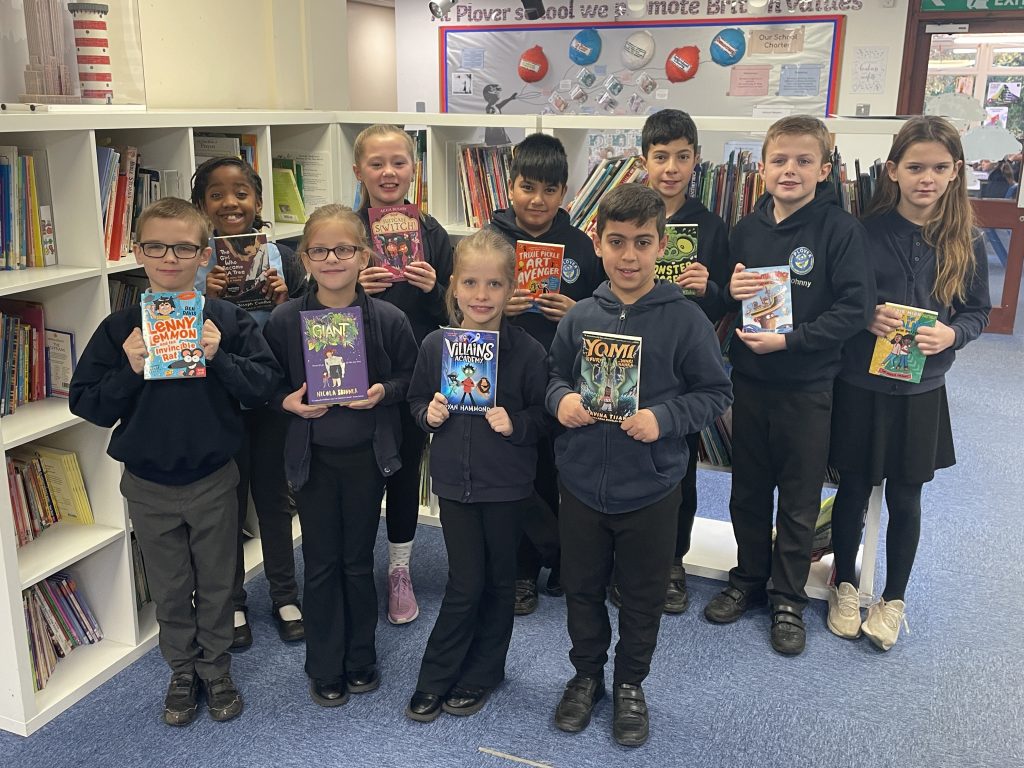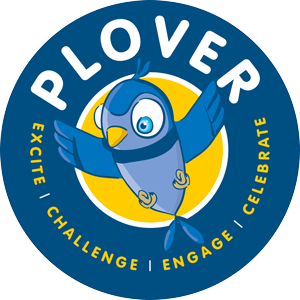At Plover school, we believe that a quality English curriculum, should foster our children’s love of reading and writing
One of our priorities is that, by the time children leave our school, they should have mastered the five components of reading: phonemic awareness, phonics, fluency, vocabulary and comprehension.
Our intention is to provide an English curriculum that is Expedition driven and that develops reading, writing and language skills to enable all children make a clear progression as they move through school.
Not only do we prioritise the skills of reading, we also believe that children should develop a love of reading for pleasure and we intend to provide the resources and experiences to spark an enthusiasm for reading.
Early Reading at Plover
At Plover we use a systematic approach to teaching phonics, using Read Write Inc programme from EYFS through to KS1 and as part of our continuation programme through KS2.
Click the link to read more:
https://sites.google.com/ploverschool.co.uk/earlyreadingandphonics/home
English Lessons in KS1 & 2
English is driven by Expedition and each expedition has a core text/ texts related to the expeditionary learning. As part of the planning process, staff incorporate a range of authors and text types. This is overseen by the English Lead. Reading in English lessons should also support expedition learning by incorporating non-fiction texts as well as fiction.
The English cycle is designed so that children have the opportunity to read and work with a text and then use the text to produce written work. Therefore reading and writing tasks are interlinked.
Reading in KS2
In Key Stage 2, all children who have met age appropriate standards have a timetabled daily hour of reading, which consists of ‘Speedy Reading’ and a computer assisted reading programme.
Reading fluency and comprehension is practised daily in class through the use of ‘Speedy Reading’. A short appropriate text is studied throughout the week with a different reading focus each day – Day 1 = Vocabulary; Day 2 = Retrieval; Day 3 = Inference; Day 4 = Comprehension Practice. The text is mostly linked to the current expedition, but gives the teacher an opportunity to share a wider variety of genres with the children. Speedy Reading develops reading fluency and comprehension skills through careful teacher modelling, opportunities to hear and practice high-quality reading aloud, explicit teaching strategies to support reading comprehension such as for inference, prediction, summarising, activating prior knowledge and questioning.
Accelerated Reader
Accelerated Reader is used in UKS2 for children, who have met the required standard in phonics. The STAR reader test is used termly to assess reading levels and allocated book levels. Children select books from their reading range and complete quizzes on the books once they have read them. Children have reading targets to encourage them to complete quizzes and they are rewarded by class teachers. 20 minute AR sessions take place daily to enable children to read independently and then quiz on the books. In addition to this, children take their AR reading book home each day for home reading.
Reading Plus
In the summer term of 2024, children in years 2-4, who have met the required standard in phonics, use Reading Plus for their daily reading, to promote comprehension and reading fluency. This is an online adaptive reading programme to promote reading fluency and comprehension. Children read a text and then answer questions about it. This is to be implemented into Year 5 in the summer term and will eventually replace Accelerated Reader. Crew Leaders use the data from the reading reports to facilitate children setting their reading targets weekly during ‘Time to Read’ Crew.
Catch Up Reading
Following an assessment, children in KS2 who are not achieving the required standard in phonics are identified for Read Write Inc phonics intervention. They attend an adult led group session for one hour a day three times a week and thirty minutes twice a week. During this time they follow the RWI phonics programme sequence incorporating the teaching of sounds, words and developing reading and writing. Some children also have 1:1 tuition to support them in their phonics development.
In Upper Key Stage 2, children who require support with phonics take part in small group Read Write Inc ‘Fresh Start’ sessions on a daily basis.
Promoting Reading for Pleasure
Books are a prominent feature across all phases and every classroom and shared area has book displays linked to the expedition.
The school has worked with ‘Doncaster Stories’ (funded by the National Literacy Trust.) As a result of the school’s involvement with this Doncaster charity, children take part in author talks, book drops, workshops and events. There have been book linked workshops and funding has been secured to improve the school library facilities.
Recently, Plover School has been invited to take part in the first Doncaster ‘DIP DAP” book awards, to celebrate authors and illustrators of newly published books. We currently have a group of Year 5 pupils who are reading and reviewing the books and who will attend the final award ceremony in Spring 2024.

We also take part in the annual World Book day event and Pyjamarama to promote the reading of books. Last year we ran competitions and review writing, as well as ‘the Masked Reader’ event.
Other competitions take place throughout the year to promote reading and writing including: handwriting competitions; read aloud competitions and Accelerated Reader competitions and reading is celebrated weekly in Community Crew sessions.
At the end of the day, before crew, time is allocated for class teachers to share a story with their class. This is a time for the class to enjoy a book together and to experience the real pleasure of reading.
